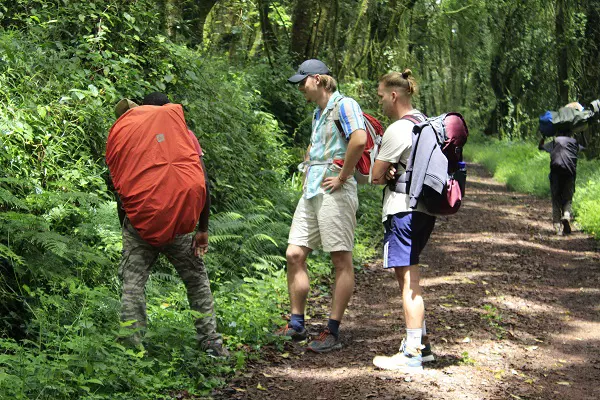
Climbing Kilimanjaro is not just a personal journey; it's a collective effort that involves a dedicated team of porters, guides, and support staff working tirelessly to ensure the success and safety of the climbers. As adventurers bask in the triumph of reaching Uhuru Peak, a significant consideration emerges: How much should you tip porters on Kilimanjaro? In this exploration, we delve into the etiquette, factors, and considerations surrounding tipping, acknowledging the invaluable contributions of the porters who play a pivotal role in the Kilimanjaro experience.
Porters on Kilimanjaro shoulder a tremendous responsibility, carrying essential gear, setting up camps, and ensuring the smooth logistics of the climb. Their dedication and hard work contribute significantly to the overall success and comfort of the climbing party. Recognizing and appreciating their efforts through a thoughtful tip is a customary practice in the climbing culture.
The chosen route and the duration of the climb can impact the tip. Longer routes and extended climbs may warrant a higher tip.
The size of the climbing group is a factor. Larger groups may tip more collectively, while solo climbers may consider a slightly higher individual tip.
The level of satisfaction with the service provided by the porters and the overall climbing experience can influence the tip amount.
Some climbing groups may establish specific tipping norms. It's advisable to be aware of any predetermined guidelines within the group.
Consider the economic conditions in Tanzania. Tipping is not just a token of appreciation but also a means to support the livelihoods of the local staff.
While the decision of how much to tip porters ultimately depends on individual preferences and circumstances, there are general guidelines that climbers often follow:
A common practice is to tip an average of $10 to $20 per climber per day for the entire support staff, to be distributed among guides, cooks, and porters.
Climbers often consider providing an additional bonus for a successful summit. This can range from $50 to $100 or more, depending on individual preferences.
Some climbing groups pool their tips and distribute them collectively among the support staff.
Consider recognizing exceptional efforts by specific individuals, such as the head guide or a particularly helpful porter, with a separate acknowledgment.
While tipping is often done in USD, having some cash in Tanzanian Shillings can be practical for personal transactions and gifts.
Tipping is a meaningful way to express gratitude, but it's not the only avenue. Simple gestures, such as verbal appreciation, engaging with the staff, and respecting their work, go a long way in fostering a positive and appreciative climbing environment.
As climbers stand on the summit of Kilimanjaro, surrounded by breathtaking vistas, the realization of the collective effort that brought them there is profound. Tipping porters is not just a formality; it's a gesture of appreciation for the unsung heroes who make the ascent possible. In navigating the delicate balance of generosity and cultural sensitivity, climbers can ensure that their tokens of gratitude contribute to the well-being and livelihoods of the dedicated individuals who play an integral role in the Kilimanjaro adventure.